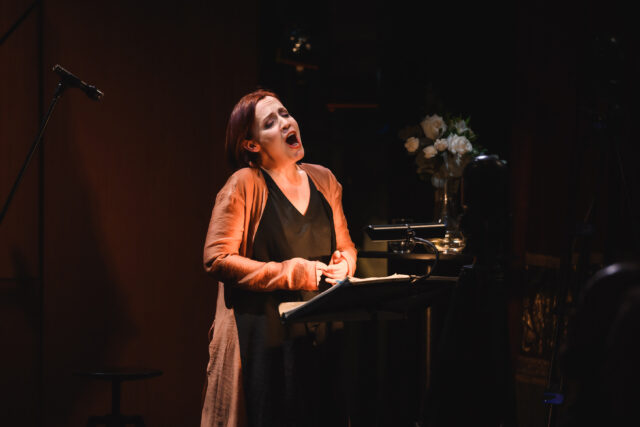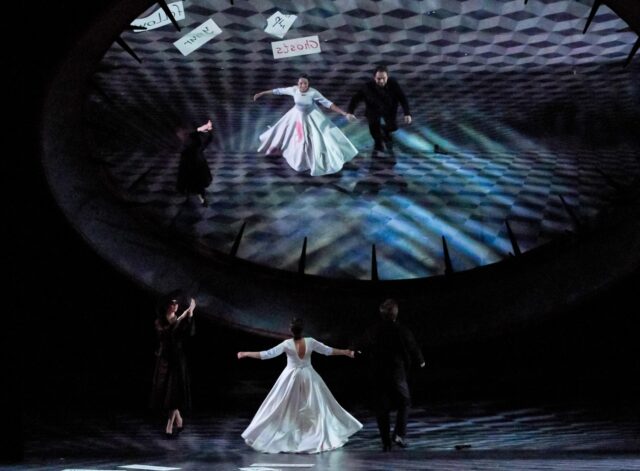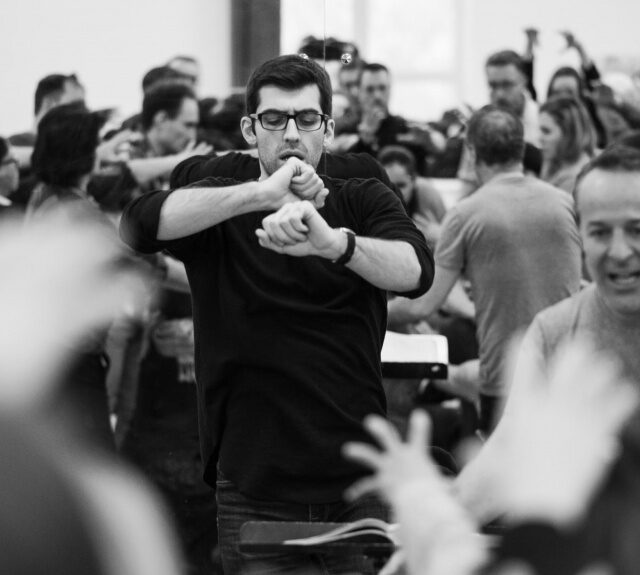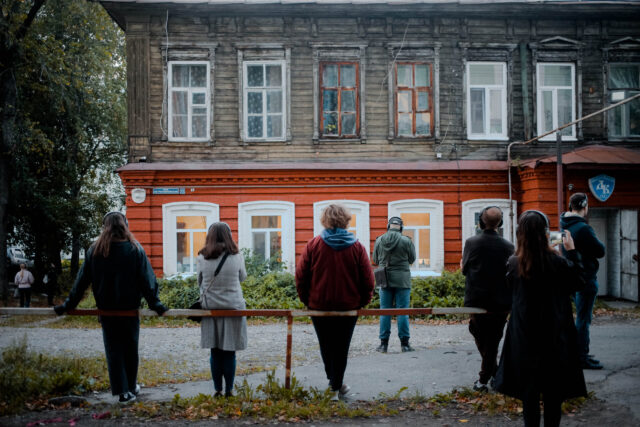The Perm Opera and Ballet Theatre is the only theatre in the country that has staged the opera trilogy by Mozart and his librettist Lorenzo Da Ponte: Le Nozze di Figaro, Don Giovanni and Così Fan Tutte. All three productions were created by different directors, and, conceptually, this project can certainly be defined as «Currentzis’ Mozart». This notion includes an aspiration for perfect sound, which is already typical for the conductor and his orchestra musicAeterna, personal freedom of interpretation and a practice of historically-informed performance.
In a nutshell, such Mozart can be found nowhere but Perm. However, even in Perm it is a rare phenomenon. After their premiere all three Mozart’s masterpieces are going to be shown one after the other at the end of November, only once during the season. Currentzis is an ardent opponent of repertory theatre and believes that a daily flow of different performances does not contribute to the high quality of performance.
The last premiere in Perm was staged by Valentina Carrasco, an Argentinian director of the famous Catalan troupe «La Fura dels Baus». She created an infernal atmosphere by encumbering the stage with an incredible number of naked mannequins and eerie racks full of the same mannequins but dismembered. The darkness is deepened by video art in noir style, projected on the transparent guillotine curtain. In this space Mozart’s dramma giocoso (jocular drama) is performed, with its characters looking somewhat bizarre. Over their modern clothes, everybody wears belts, corsets and orthopaedic braces, the symbolic meaning of which is as clear as day. Of course, the only normal and healthy person in this world of plastic dolls and the morally disabled is Don Giovanni. With his natural reactions, desires and deeds he is more alive than anyone else. But he will not be forgiven for his exuberant vitality, and the evil milieu will destroy him. This is how the performance begins. Everything that follows is rewinding the film.
Despite a rather straightforward message (the main idea reveals itself at the very beginning and the finale is naturally predictable) Carrasco has created a lively, bold work, which is devoid of any reflection, but abounds with spicy erotic details. The work is quite dynamic in Act I, with Act II being slightly sluggish. The climax of Act I is a wild party at Don Giovanni’s, where, according to the dress code, only those are welcome who voluntarily get rid of their hateful chains. A colourful crowd of happy freaks and nonconformists bursts into the auditorium and then onto the stage, unfolding a banner stating «Viva la Liberta». However, very soon under pressure from spiteful and hypocritical puritans with crutches and prostheses, everything will revert to the dull and grey mundanity. In Act II Donna Anna, Ottavio and Elvira, inspired by their conversations with Don Giovanni, feel an urge to get rid of their complexes and literally to remove absurd restraints. But this idea cannot be successful. Particularly funny is an erotic scene where Zerlina, full of mischief, performs a little striptease trying to seduce her fiancé, bumpkin Masetto. At the crucial moment a codpiece covering his private parts gets stuck. It is a failure again.
The soloists have to deal with characters of extraordinary liveliness and challenging performance objectives. Well-prepared roles, absolute freedom and splendid singing are an achievement of most performers. Both Don Giovannis are good in their own way: Simone Alberghini, who has long been known to the Russian public, is a worldly-wise, irresistible lady killer with a Mephistophelian half-smile. Andrè Schuen, a shockingly young and handsome singer with a rich baritone, is certainly a discovery of the production. His vocal achievements are even more considerable, particularly the speedy Champagne Aria and the Serenade with incredible pianissimo. Among guest soloists I would pay tribute to Guido Loconsolo (Leporello) and Iwona Sobotka (Donna Anna). Before the premiere Currentzis promised that there would be new discoveries in the Perm troupe, and they did happen. It is worth remembering the names of Nadezhda Pavlova (Donna Anna), Daria Telyatnikova (Zerlina) and Boris Rudak (Ottavio).
Clearly, Mozart’s Don Giovanni is an opera of particular importance for Currentzis. It is not the first time that he has presented this opera to the public. Many people remember the concert performance in Moscow and the production he staged in the Bolshoi Theatre together with Dmitri Tcherniakov. During the premiere in Perm the conductor also performed as an actor: in the scene where hippies get beaten up after the party a spiteful disabled person runs to the orchestra pit and furiously tramples on Mozart’s score. The imperturbable maestro plays the rest of Act I without music. It is clear that Currentzis is not afraid of parallels to the protagonist who, despite everything, lives by his own rules, and probably aspires to them.
The director has chosen his own way of implementing an excellent idea of a stage work about a unique and independent personality — by playing with some basic notions. Carrasco considers freedom only as sexual liberation and replaces the notion of love by sex. The pursuit of an ideal and eternal femininity, which are so important for Don Giovanni’s image, begin to look like banal promiscuity. The exhausted character has nothing left but to sing a serenade to an inflatable doll. But what about Don Giovanni’s paradoxical and ambivalent nature and the psychological ambiguity of other characters? Where is the existential cosmos, metaphysical depths and mysteries? The correct answer is Mozart’s score, played by Currentzis and his musicians. It seems that the counterpoint between music and the stage is becoming the main principle of the conductor’s stage direction. And quite often it is not necessary for him to have an associate working on the same scale. The only exception is last year’s The Indian Queen by Purcell, which was staged by Peter Sellars.
By the way, for Carrasco’s idea a more suitable version of the score would be one without the final scene and a moralistic fugato at the end, which certainly looks like a useless makeweight. However, for Currentzis who is finishing the project that was launched three years ago, it is crucial to present the complete version. Yet, for him the stage version of the opera is just the initial phase of work, which will give place to another (long and thorough) process: the recording of the production by Sony Classical, a record label with which the conductor has signed a long-term contract. Last spring the release of Le Nozze di Figaro received enthusiastic reviews and prestigious awards (including ECHO Klassik and, quite recently, CD of the Year from the authoritative magazine Opernwelt). Così is coming soon, while Don Giovanni, which is being recorded now, should come out next year. Currentzis’ artistic routine, where the creation of stage works alternates with laborious studio work to immortalise their music is truly exemplary.



